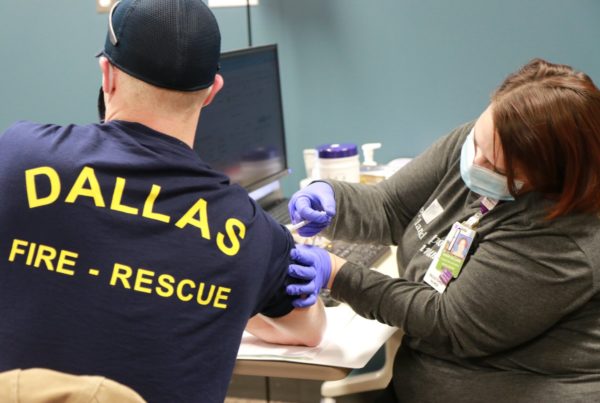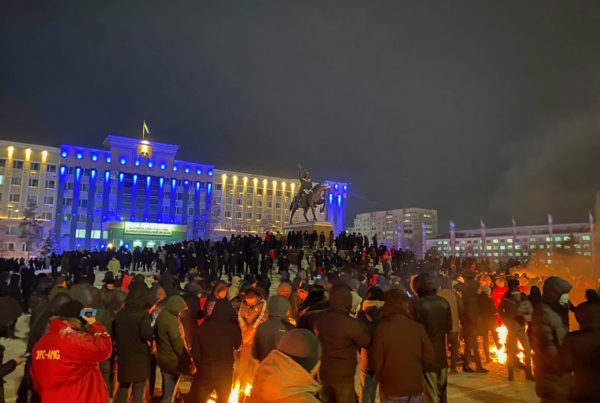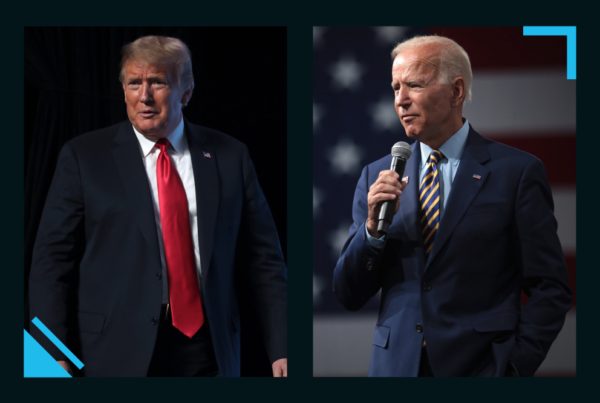The Texas office of the Securities and Exchange Commission, or SEC, has launched a probe of banks over disclosures about how their policies potentially conflict with recent changes to Texas law regarding discrimination against firearm and energy companies.
Reuters correspondent Chris Prentice has been reporting on the story. Listen to the interview above or read the transcript below.
This transcript has been edited lightly for clarity:
Texas Standard: Why is the Texas office of the SEC leading this? Is there something that seems to have sparked this bank probe?
Chris Prentice: I think you’re seeing a couple of factors. First, there is a real effort from the SEC to prioritize what we call ESG, or environmental, social and governance issues. That’s been a real change over the past year under President Joe Biden. And the SEC has a very active regional office in Fort Worth. In a lot of ways, it makes sense for them to take the lead on some of these ESG issues, given the energy industry’s importance in Texas.
The other factor that I think is that state lawmakers last year rolled out these new laws, which are aimed at banning state entities from working with companies that discriminate against firearms or fossil fuel companies.
So would that be against federal law? Is that what the SEC is probing
The core issue is for banks that have pretty ambitious targets around ESG. Let’s say they’re saying that by 2050, they’re going to be net-zero on carbon emissions in both their operations and their lending: can it be true that they’re also telling Texas regulators that they don’t boycott energy companies?
So that they can continue to operate in Texas?
Exactly. And nearly 40 financial institutions that wanted to keep handling municipal securities offerings for the state and local governments in Texas have signed certification saying that they and their subsidiaries don’t boycott energy firms or they don’t have policies restricting firearms companies.
In other words, if I understand you correctly, the SEC suspects some banks may be, for PR purposes or maybe to maintain good relations with the federal government, saying one thing and telling Texas another.
That’s certainly what it seems to be probing. I don’t know that they have determined that any banks have actually done that. These inquiries are not necessarily evidence of any wrongdoing. But I think what you’re seeing is them asking a pretty reasonable question, which is how can both of these things be true?
Now that raises the question: is the target really the banks themselves? Or, as you mentioned, the Biden administration’s been pretty aggressive on this issue. Are they trying to squeeze Texas lawmakers?
It’s an interesting question. The target is definitely the underwriters, the banks – those are the institutions within its jurisdiction. And I think the crux would be, if they are telling investors something that is misleading or outright false, that would be a violation of securities laws. What you tell investors has to be true information. So that’s the crux.
If it ends up being that there is pressure politically to change laws, I think it wouldn’t be coming from the SEC [but from investors].
Has there been any response yet from Texas officials, or any officials in government from what you can tell, other than this? What did the SEC have to say about it?
They declined to comment. Unfortunately, I have not heard from any officials on any of this. I would love to know what they would say to it, but I think we might have to wait a little bit to see how it shakes out.
And I presume Texas officials haven’t had anything to say?
Not to me. No.
Where might all this be headed? If the SEC does move forward, would there be some kind of enforcement mechanism that would be invoked? What would happen then?
Typically with these inquiries, you would have a back and forth with the banks. The SEC has asked these questions. They’ll get responses. They might have follow-ups. And theoretically, if a bank has told Texas, let’s say that it doesn’t boycott energy companies, and that is at odds with what it’s telling shareholders, and what it’s telling shareholders is incorrect or misleading, then you might see the SEC come out with charges saying that the bank violated securities law.















